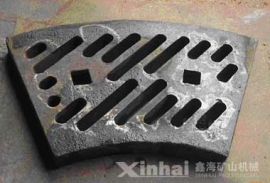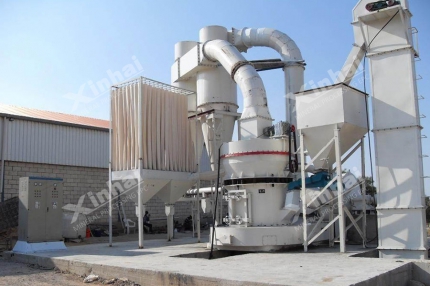With the increasing of copper mining resources, copper tailings emissions increases as well. Copper tailing is made up of the fine sands from copper ore crushing and concentration. There are an amount of metal and nonmetal minerals to be reprocessed. Suitable reprocessing technology can recycle them. It has an important meaning to the comprehensive utilization of copper tailings. In actual production, different types and characteristics of copper tailings need different mineral processing methods. In this passage, we will introduce you the copper tailing physical and chemical properties, and two types of common copper reprocessing methods: vulcanization flotation and leaching.
Use the table of contents below to navigate through the guide:
01Copper tailings physical and chemical properties
The physical form of copper tailings is similar to sand. However, it has more complex mineral composition than sand. There are a large number of valuable elements such as silicium, calcium, aluminum, iron. The main mineral is quartz, feldspar, calcspar, mica, copper pyrites, pyrrhotite, etc. Many copper tailings have more SiO2 and CaCO3, some FeS2 and another sulfide.

02Copper tailings reprocessing method
(1)Vulcanization flotation of copper tailings
The essence of vulcanization flotation is to sulfide the ground copper oxide pulp with sulfide and flotation with xanthate collector. Copper oxide is in sodium sulfide solution, which adsorbs HS- and S2-. It forms a covering layer of copper sulfide. The adsorption of xanthate on the surface of sulfide copper oxide is like the adsorption on the surface of copper sulfide minerals.
In the actual production process, the amount of tailings is much larger than the amount of concentrate. If copper tailings are directly recovered by sulfide flotation, it will not only affect the yield but also waste a lot of chemicals. Therefore, before using the sulfide flotation method to treat copper tailings, it is necessary to pre-enrich the original tailings to discard a large number of gangue minerals in advance, reduce the subsequent processing volume, avoid waste of chemicals and increase the flotation grade.
In the reprocessing course of copper tailings, the vulcanization flotation can be used to acquire high-grade copper concentrates. It has a good recovering result. However, the vulcanization flotation has high technical requirements and a large investment. It is suitable for large scale copper tailings processing plant.

(2)Copper tailings leaching method
The leaching of copper tailings is to convert the solid phase copper compound into the copper ion in the liquid phase, and then extract the metallic copper from the leaching solution. According to different leaching reagents, it can be divided into acid leaching, ammonia leaching, bacterial leaching, and electrochemical leaching. In the follow article, two common methods are introduced.
Acid leaching: Generally, dilute sulfuric acid is used as the leaching agent, which is suitable for processing copper oxide ore mainly composed of acidic gangue. This method has the advantages of high copper leaching rate, low price of leaching agent, and simple process and operation. However, its application range is relatively narrow, it is only suitable for processing simple copper oxide ore, and requires low calcium, magnesium and impurity iron content, and poor leaching selectivity.
Ammonia leaching: ammonia leaching can be directed used for copper tailings. The tailings can also be reduced and roasted before ammonia leaching. The ammonia leaching method is suitable for the treatment of copper oxide ore with higher alkaline gangue content and more silt. The ammonia leaching method has relatively high selectivity for metallic copper and alkaline gangue components, and there are fewer impurity metal ions in the leaching solution. However, this method requires high equipment and high energy consumption.
Besides, there are a lot of other valuable elements in copper tailings. According to the composition of copper tailings, various useful components such as gold, iron, silver, wollastonite, fluorite, etc. can also be selected. In the process of the reprocessing of copper tailings, sulfide flotation and leaching methods can be used for the reprocessing of copper tailings. In the actual production process, it is necessary to select the appropriate tailings reprocessing process and equipment according to the nature of the copper tailings, and recover copper from the waste rock and tailings, and multiple useful metals and non-metal elements such as gold, silver, iron, etc., to achieve efficient use of copper resources.


 marketing@ytxinhai.com
marketing@ytxinhai.com  0086 13810327080
0086 13810327080 






































































































 CHAT
CHAT MESSAGE
MESSAGE



